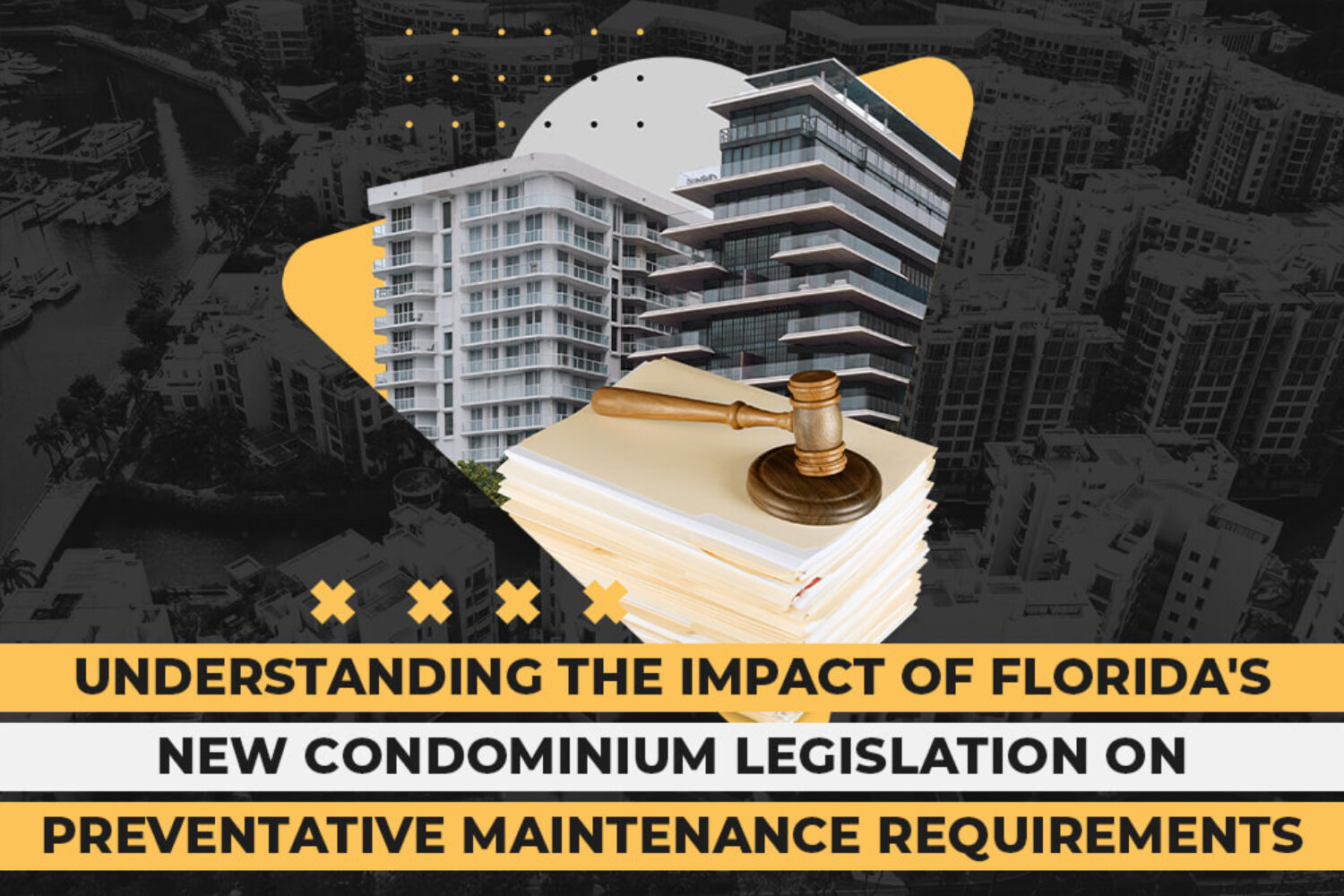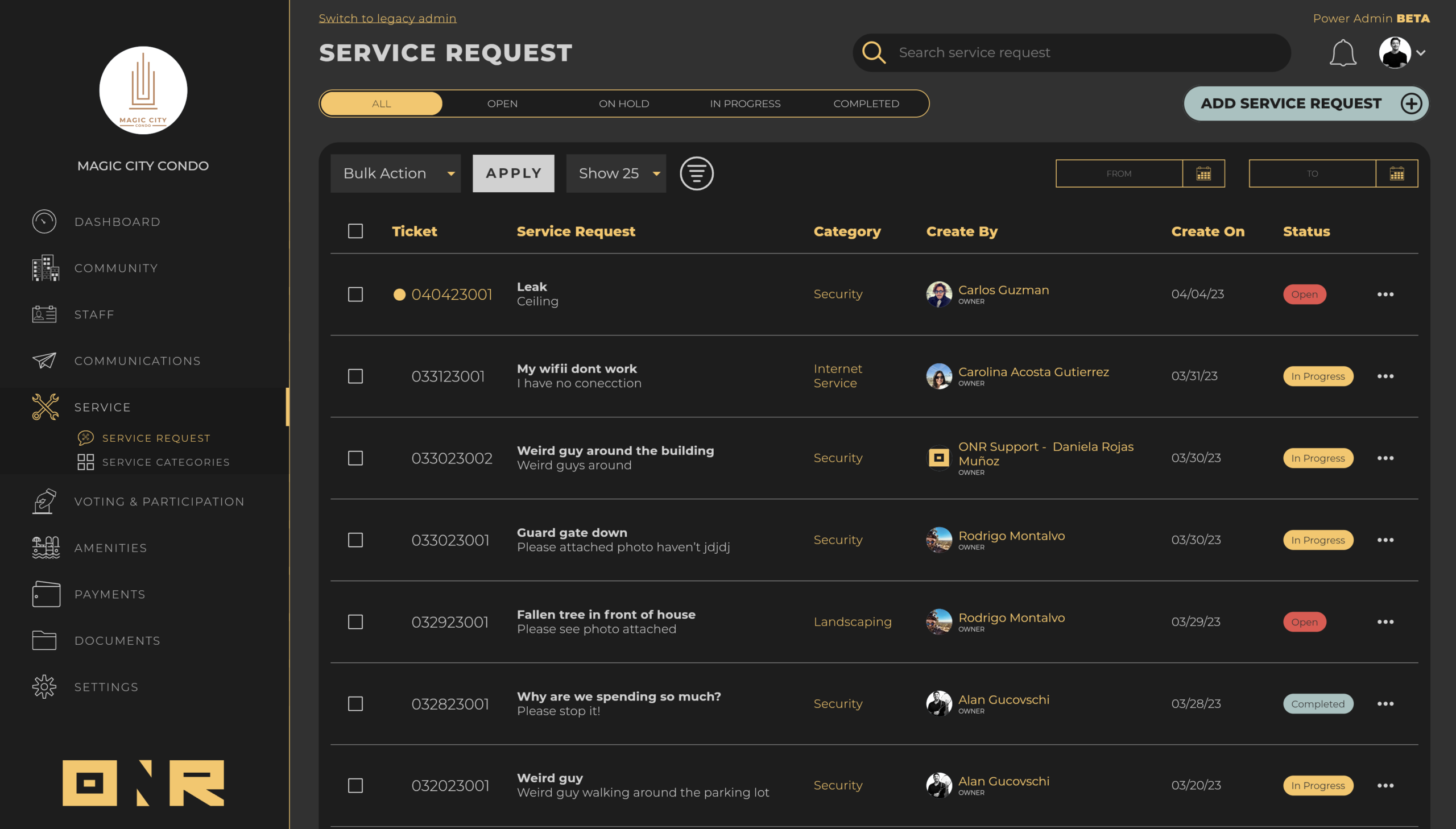After the tragic Surfside Condominium building collapse in June 2021, Florida enacted new legislation, formerly known as Senate Bill 4D, that modifies certain rights and duties of condo associations across the state. This new law, signed by Governor Ron DeSantis on May 26, 2022, and now referred to as the Florida Condominium Preventative Maintenance Act of 2023, focuses primarily on preventative maintenance, inspections, and maintaining reserve funds.
As a leader in the industry, the team at ONR has reviewed the critical aspects of this new legislation, its impact on condo associations and property managers, and how businesses can adapt to the new regulations.
Here’s our takeaway:
-
Milestone Inspections

-
Enhanced Maintenance Standards
In addition to milestone inspections, the new law introduces upgraded service benchmarks for all condominium buildings in Florida. These standards require associations and property managers to conduct regular checks, perform routine maintenance, and address any issues promptly. This helps to prevent the possibility of structural failure and ensures that residents can live in a safe environment.
-
Structural Integrity Reserve Studies
Associations are now required to conduct analysis and provide reports every 10 years, starting with the initial study to be completed by December 31, 2024. These studies, completed by licensed engineers or architects, will evaluate the necessary future structural repairs of the common elements and confirm that the association has adequate funds reserved for these repairs. The result: a recommended annual reserve amount that covers the replacement costs of the areas inspected.
-
Increased Reporting Requirements
The Florida Condominium Preventative Maintenance Act of 2023 has also introduced increased reporting requirements for condominium associations, who must now submit the paperwork to the Florida Department of Business and Professional Regulation (DBPR) every year. These reports must include information about the building’s condition, the progress of the preventative maintenance plan, and any significant maintenance issues that have arisen.
-
Reserves and Waiver Restrictions
Under the new legislation, condominium associations must have funds reserved for large maintenance items, and they can no longer waive these reserves. Associations that fail to complete a structural integrity reserve study will be considered in breach of their fiduciary relationship with the unit owners.
ONR’s recommendations for Property Managers:
-
Develop a Comprehensive Preventative Maintenance Plan
Condominium associations and property managers must work together to create a holistic preventative maintenance plan. This plan should outline all maintenance tasks, their frequency, and the parties responsible for carrying them out. It should also include a system for tracking progress and ensuring that tasks are completed promptly.
-
Invest in Technology
Digital platforms like ONR can play a crucial role in helping associations and property managers comply with the new legislation. By implementing software solutions that enable them to track and manage maintenance tasks, associations can ensure that they stay on top of their preventative maintenance plan and meet the reporting requirements set forth by the DBPR.
-
Foster a Culture of Compliance
Condo associations and property managers should work to promote open communication, regularly update staff on the latest regulatory requirements, and provide training on maintaining compliance. By creating an environment that prioritizes cooperation, associations can reduce the risk of non-compliance and make sure they are prepared for future regulatory changes.
-
Engage Professionals Early
Associations and property managers should seek professional advice from qualified engineers, architects, and legal counsel as they navigate the new legislation. By engaging professionals early in the process, associations can ensure they have a clear comprehension of their obligations and can implement the necessary changes to maintain compliance.
-
Educate Unit Owners
It’s essential to efficiently engage with unit owners and residents to thoroughly explain the new legislation and its implications for them. This includes informing them about the purpose of the milestone inspections, the increased reserve fund requirements, and the reporting obligations. By keeping unit owners informed, associations can help to promote a sense of shared responsibility and create a community that is committed to maintaining a safe living environment.
The Florida Condominium Preventative Maintenance Act of 2023 represents a significant shift in the way condominium associations and property managers approach preventative maintenance. The sooner property managers understand and adapt the new requirements accordingly, the better they maintain compliance and provide a safe environment for their residents.
We’re here to help — book a demo today!


